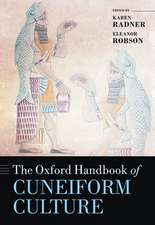Bridges over Troubled Water: A Comparative Study of Jews, Arabs, and Palestinians
Autor Dahlia Moore, Salem Aweissen Limba Engleză Hardback – 29 oct 2004 – vârsta până la 17 ani
Preț: 437.57 lei
Preț vechi: 604.09 lei
-28% Nou
Puncte Express: 656
Preț estimativ în valută:
83.73€ • 87.42$ • 69.30£
83.73€ • 87.42$ • 69.30£
Carte tipărită la comandă
Livrare economică 04-18 aprilie
Preluare comenzi: 021 569.72.76
Specificații
ISBN-13: 9780275980603
ISBN-10: 027598060X
Pagini: 248
Dimensiuni: 156 x 235 x 19 mm
Greutate: 0.51 kg
Editura: Bloomsbury Publishing
Colecția Praeger
Locul publicării:New York, United States
ISBN-10: 027598060X
Pagini: 248
Dimensiuni: 156 x 235 x 19 mm
Greutate: 0.51 kg
Editura: Bloomsbury Publishing
Colecția Praeger
Locul publicării:New York, United States
Notă biografică
DAHLIA MOORE is Head of Graduate Studies in Organizational Consulting and Head of the Undergraduate Honors Program at the College of Management, Israel.SALEM AWEISS is Assistant Professor of Education and Psychology at Birzeit University and Visiting Professor at the University of Florida.
Cuprins
PrefaceSocio-Historical Context and Theoretical FrameworkMethodology: Samples, Questionaires, and MeasuresSocial IdentitiesCorrelates of Social IdentitiesSocial Identities and AttitudesIntolerance of 'Others'Willingness to Assume Social ResponsibilityReferencesAppendicesIndex















